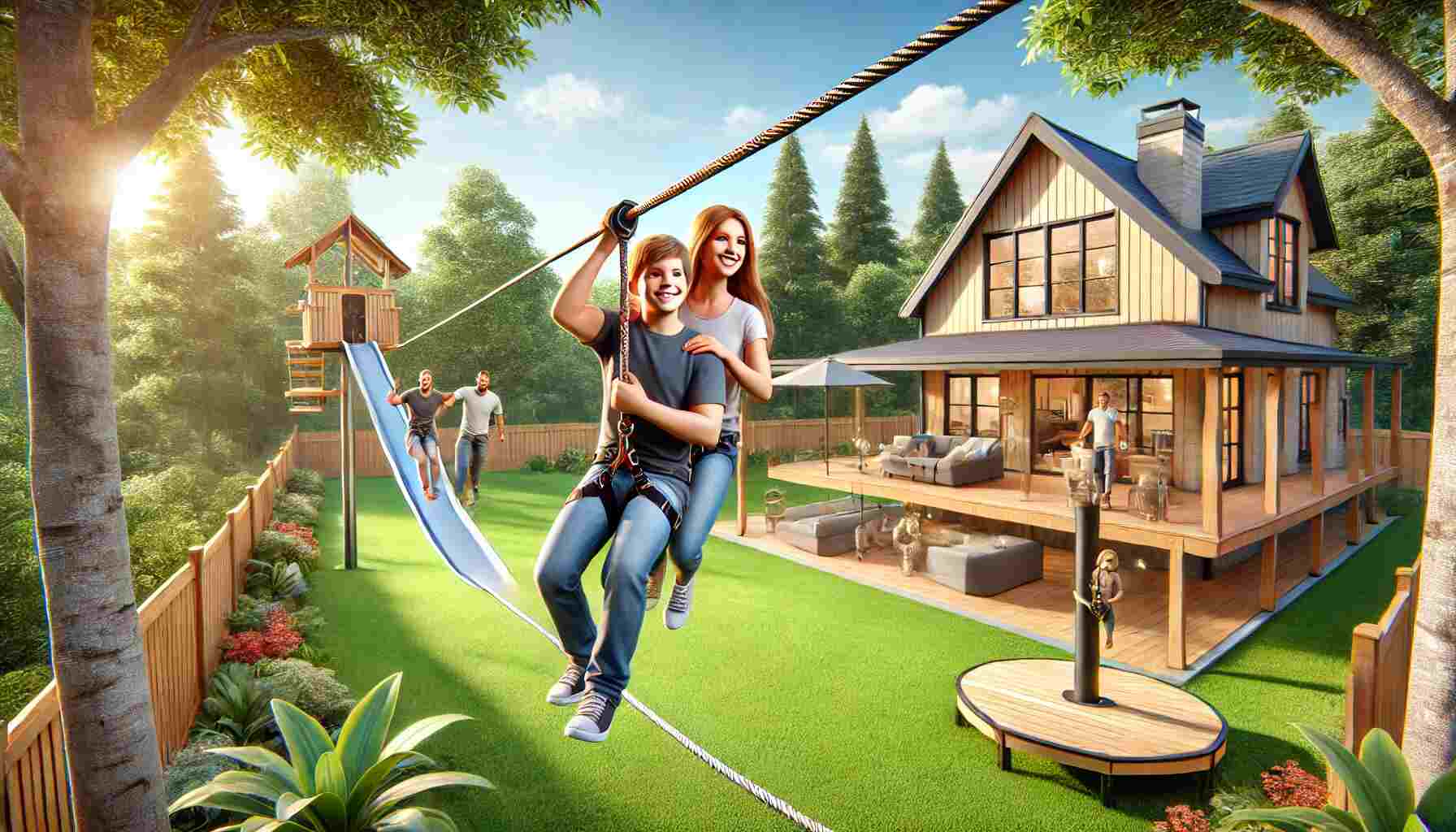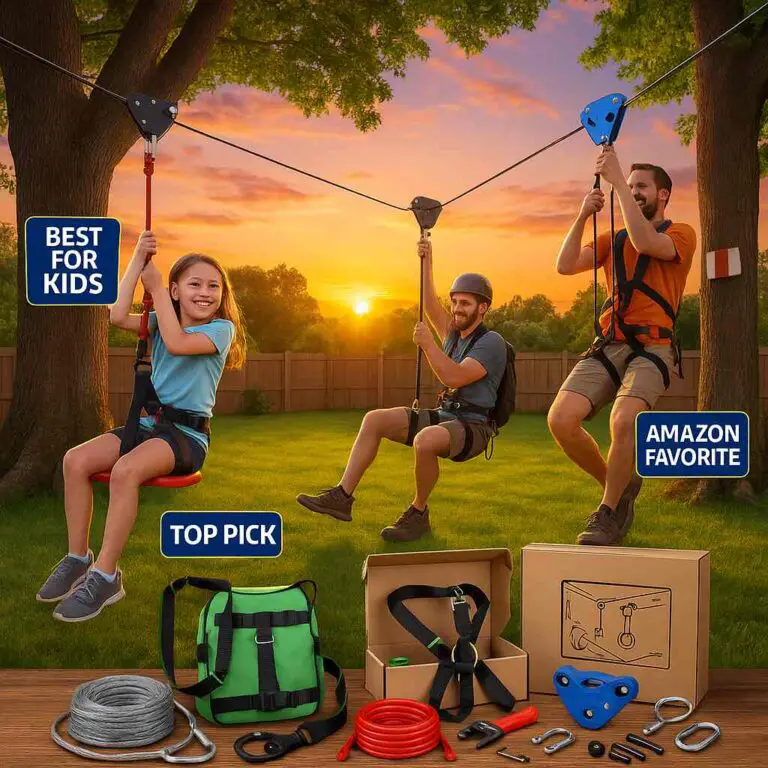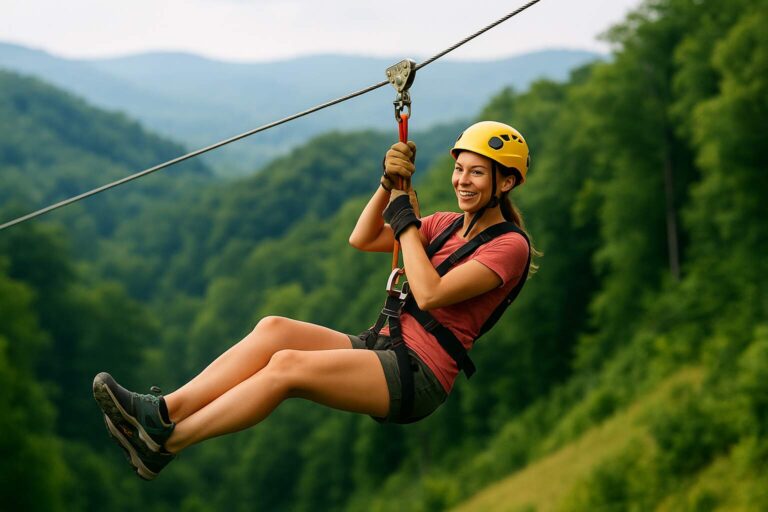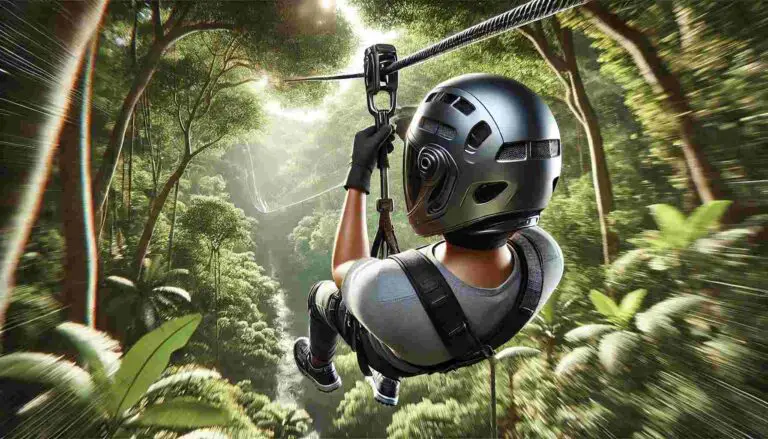This guide provides everything you need to know about hiring a backyard zipline installation company, from planning and safety to the installation process and maintenance. We’ll cover key considerations, statistics, studies, and tips to ensure your zipline is safe, fun, and durable. Let’s dive in!
Why Install a Backyard Zipline?
Adventure and Fun
A backyard zipline provides endless entertainment for kids and adults alike. It’s an exhilarating way to enjoy the outdoors and create lasting memories with family and friends.
Physical Benefits
Using a zipline encourages physical activity, helping improve balance, coordination, and strength. It’s a great way to get kids off screens and moving outside.
Unique Home Feature
A zipline can be a unique addition to your home, increasing its appeal and potentially its value. It’s a feature that stands out and can make your backyard the envy of the neighborhood.
Planning Your Backyard Zipline
Assess Your Space
Before contacting an installation company, assess your backyard to determine if it’s suitable for a zipline. Consider the following:
- Distance: A minimum of 50 feet is recommended for a short zipline, but longer ones provide a more thrilling ride.
- Elevation: A gentle slope is ideal, with higher ground at the starting point and lower ground at the end.
- Obstacles: Ensure there are no trees, fences, or other obstacles in the zipline’s path.
Set a Budget
Ziplines can vary in cost based on length, materials, and additional features like platforms or safety gear. Setting a budget helps you narrow down your options and communicate your needs to the installation company.
Choosing the Right Zipline Installation Company
Research and Reviews
Start by researching local companies. Look for reviews and testimonials to gauge their reputation. Websites like Yelp, Google Reviews, and Angie’s List can provide valuable insights from previous customers.
Check Credentials
Ensure the company is licensed and insured. This protects you in case of accidents or damage during installation. Ask for proof of insurance and any relevant certifications.
Get Multiple Quotes
Contact several companies to get quotes. Compare prices, but also consider the scope of services offered. A slightly higher price might be worth it for a company with more experience or better reviews.
Installation Process
Site Inspection
A reputable installation company will start with a site inspection. They’ll assess your yard to determine the best location for the zipline, considering factors like trees, slope, and ground stability.
Design and Planning
Based on the inspection, the company will design a custom zipline plan. This includes choosing the appropriate cable length, materials, and any additional features like platforms or safety gear.
Installation
The actual installation process typically involves:
- Anchoring: Installing sturdy anchors at both the start and end points.
- Cable Setup: Stretching and securing the zipline cable.
- Safety Features: Adding necessary safety features like braking systems and harnesses.
- Testing: Conducting a thorough test to ensure everything is secure and functioning properly.
Safety Considerations
Equipment Quality
Ensure the company uses high-quality materials and equipment. The cable, anchors, and safety gear should all meet industry standards for durability and safety.
Professional Installation
Professional installation is crucial for safety. Improperly installed ziplines can be dangerous, leading to accidents and injuries. Trust only experienced professionals to handle the installation.
Regular Maintenance
Regular maintenance is essential to keep your zipline safe. The installation company should provide guidance on maintenance, including periodic inspections and replacing worn-out parts.
Maintenance Tips
Routine Inspections
Regularly inspect your zipline for signs of wear and tear. Check the cable, anchors, and safety gear for any damage. If you notice any issues, contact the installation company for repairs.
Weather Considerations
Extreme weather can affect your zipline. During winter, ice can build up on the cable, and heavy winds can damage the anchors. Take precautions to protect your zipline in adverse weather conditions.
Cleaning
Keep your zipline clean to prolong its life. Wipe down the cable and other components regularly to prevent dirt and debris buildup.
Enhancing Your Zipline Experience
Adding Platforms
Platforms at the start and end points can enhance the zipline experience. They provide a stable launch and landing area, adding to the overall safety and enjoyment.
Installing Braking Systems
Braking systems are crucial for safety. They help control the speed and ensure a smooth stop at the end of the ride. Discuss braking options with your installation company.
Safety Gear
Invest in high-quality safety gear, including harnesses and helmets. These are essential for preventing injuries and ensuring a safe ride for everyone.
Cost Breakdown
Basic Zipline Kit
A basic zipline kit, including the cable and anchors, can cost between $100 and $500, depending on the length and quality.
Professional Installation
Professional installation typically costs between $1,000 and $3,000. This includes site inspection, design, installation, and initial testing.
Additional Features
Adding features like platforms, braking systems, and safety gear can add $500 to $2,000 to the total cost.
Common Questions and Answers
Is a backyard zipline safe?
Yes, a backyard zipline is safe when installed and maintained correctly. Professional installation and regular maintenance are key to ensuring safety.
How long does installation take?
Installation typically takes one to three days, depending on the complexity and length of the zipline.
Can I install a zipline myself?
While DIY kits are available, professional installation is recommended for safety and durability. Professionals ensure the zipline is securely anchored and properly tensioned.
Statistics and Studies
Safety Statistics
According to the U.S. Consumer Product Safety Commission, properly installed and maintained ziplines have a low injury rate. Most accidents occur due to improper installation or lack of safety gear.
Usage Statistics
A study by the Outdoor Foundation found that ziplining is one of the fastest-growing outdoor activities in the U.S., with participation increasing by 15% annually.
Conclusion
A backyard zipline installation can transform your outdoor space into an adventure haven. By choosing the right installation company and following safety and maintenance guidelines, you can enjoy a safe, fun, and exciting zipline experience for years to come.
Ready to bring adventure to your backyard? Contact a professional zipline installation company today and get started on your backyard zipline project!
Happy ziplining!








